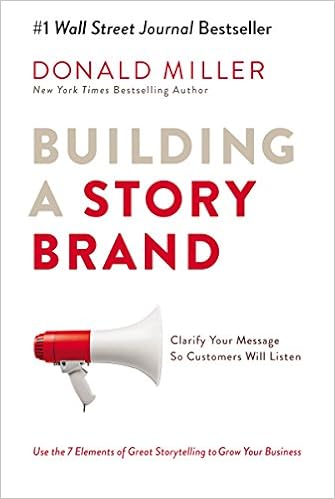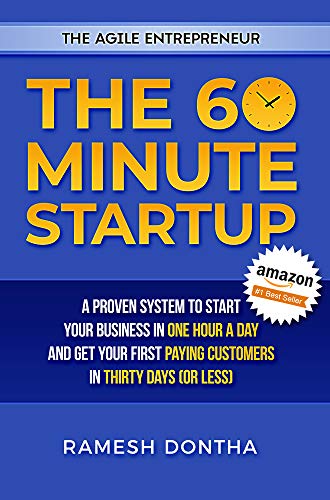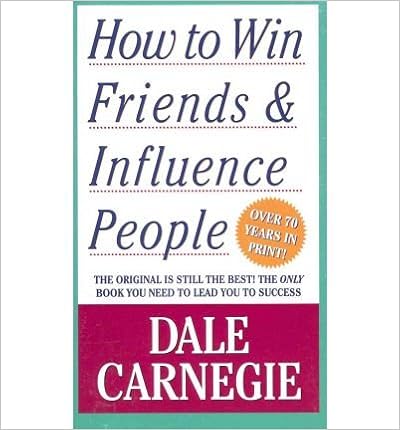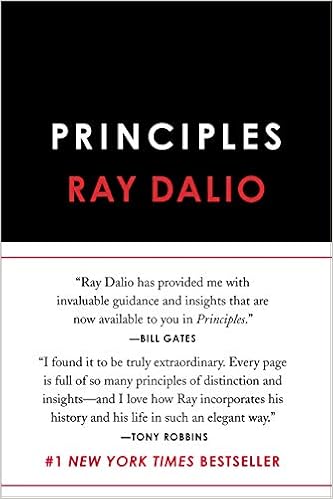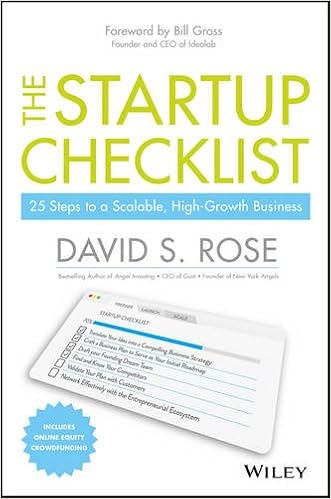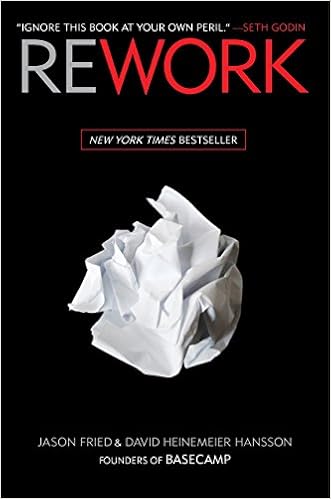Startups are a sign that new ideas and talent is being rewarded and is accessible. So how do you do it differently from the hundreds of others thinking the same thing, hoping for similar success?
These books are the theoretical pillars of startup business. If you’re new to running a business or working in a start-up, these books provide inspiration and encouragement. That’s what makes them stand out from the generic advice books that aren’t helpful for many start-ups.
This list proves it’s all about the mindset.
This contribution was made by Chris Abrams from Marijuana Life Insurance
The E-Myth Revisited by Michael E Gerber
Michael Gerber takes his decades of business experience and walks readers through the different stages of business; from startup to succeeding at maturity. He helps you to understand how to be more efficient in your business by working on your business and not in your business. This book was a game-changer for me. It helped me to focus on the big picture rather than the minutiae. It taught me how to maximize my strengths and outsource my weaknesses. This way of thinking guides my decisions and has helped me to be a more organized, productive and happy business owner.
This contribution was made by Kirby Wilkerson from The Impact Kind
Building a Storybrand by Donald Miller
The book is an easy read and very helpful for businesses and personal brands to craft how they can best express what they offer and how it might be received.
This contribution was made by Kirby Wilkerson from The Impact Kind
Exactly What to Say by Phil Jones
This contribution was made by Sheryl Green from Sheryl Green Speaks
Do Good to Do Better by Sheryl Green
Do Good to Do Better is the perfect guide for any startup that wants to create a purpose-driven brand. This book provides detailed instructions on how to incorporate a cause into your business from day one. Readers will learn the benefits (to the business) of standing for a cause, how to select a nonprofit to work with, the different ways you can support them, and how to maximize your marketing efforts to improve your bottom line. Don’t wait for the money to come rolling in before you support a cause close to your heart. Support a cause close to your heart and the money will come rolling in.
This contribution was made by Rio Rocket from RioRocket
The 60 Minute Startup by Ramesh Dontha
The 60 Minute Startup is an exhaustive approach to business which identifies the fifteen critical tasks that it takes to build a sustainable business in just one per day in thirty days or less. The book is based on ‘Agile Methodology’ which is the same intuitive approach to early stage growth that built Uber, Instagram, and Airbnb. The book will resonate well with startup founders from all walks of life and is perfect for the modern business landscape.
This contribution was made by Matt Benn from Soundplate
Tribe of Mentors by Tim Ferris
I love this book! It’s simply a collection of interviews with high performing people. The book includes tips, advice and stories from some of the worlds most successful business people, athletes, investors, authors and more. Everyone can learn something and find some inspiration from this book. The reason I picked it out as a great book for start-ups is there is so much to learn from the experience of the contributors. The details of the mistakes, lessons and routines of these people can help anyone building any type of business.
This contribution was made by Janice Wald from Mostly Blogging
How to win Friends & Influence People by Dale Carnegie
A new entrepreneur might not know the art of negotiation. Dale Carnegie teaches marketers how to get the income they want. He does this in a masterful way. Using psychology, Carnegie teaches entrepreneurs how to get people to agree to their demands for money. The art of the trade, the art of the deal, the art of the negotiation– call it what you will.
This contribution was made by Ian Atkins from Choosing Therapy
The Simplicity Cycle by Dan Ward
I love this book for the way illustrates and drives home a point that seems obvious when you hear it, but it also ignored by countless entrepreneurs and the executives and managers they surround themselves with: complexity does not equal goodness. In fact, most of our favorite things, whether they be products, services, or processes, are both good and simple. People can waste tons of time, money, and talent on making things more complex while at the same time reducing the goodness (usefulness, usability, etc) of a thing. When you’re deep in the weeds, reminding yourself that more complex doesn’t mean better can be a real life saver. Don’t have time to read the book?
This contribution was made by Kim Orlesky from KimOrlesky
Sell More. Faster. by Kim Orlesky
There is no business until there are sales and revenue. When you focus on how to get revenue, and especially a premium price for your services, everything in the business becomes much easier. Sell More. Faster. breaks down the entire sales process in a way that is easy to understand. Kim’s stories are entertaining and allow these concepts to be understood, even for someone who has never sold anything in their entire life.
This contribution was made by Molly Ford-Coates from Ford Financial Management, LLC
Profit First by Mike Michalowicz
So many books teach you about the logistics of starting a business and/or marketing a business. But what about the money aspect of your business – specifically profits? Profit First is a must-have for any start-up business to immediately see and have profit! This book is laid out in an easy-to-understand way with practical advice on how to set up your “money buckets”. You will never have an excuse not to be profitable! You are able to implement these steps TODAY and start your business on the right foot – the profitable foot. This book will truly and profoundly change the way you think of your money!
This contribution was made by Marc J. Bernstein from MarcJBernstein
The Fiscal Therapy Solution 1.0 by Marc J. Bernstein
The Fiscal Therapy Solution 1.0 is an easy to read, step by step guide to transforming your finances and your relationship to money. A must read for business owners at any stage of their business or life, by offering a powerful means for thinking about money in a new way and building long-term security for you, your family, and your business.
This contribution was made by Kevin Rodrigues from Gardening Mentor
The Millionaire Fastlane by M J Demarco
There are many things I learned from this book that help to start a business. But the concept of CENTS stands out the most to me. This is a framework that every startup should follow before starting the business. C – Control, E – Entry, N – Need, T- Time, S – Scale You should have full Control of your business. It should not have an easy Entry. There should be a Need in the marketplace. It should stand the test of Time and not be a passing fad. You should be able to Scale the business with ease.
This contribution was made by Nick Loper from Side Hustle Nation
80/20 Sales and Marketing by Perry Marshall
80/20 Sales and Marketing is a fascinating exploration of the Pareto Principal as it applies to pricing, positioning, and selling your product or service. You’ll learn Perry’s Tactical Triangle of Traffic, Conversion, and Economics, and how small tweaks inside each of those can lead to outsized results. It’s essential reading for startups operating with limited resources because it teaches you how to get the best bang for your buck in the areas that really make a difference.
This contribution was made by Valerio Puggioni from Copygun
Principles: Life & Work by Ray Dalio
I first read this book because it came strongly recommended by my previous agency’s cofounder. I’d say it’s one of those life-changing books that has massive implications on your daily life. It’s chock-full of practical tips on how to design systems in life and in work. So, it teaches you systems thinking and how to test and optimize your systems. I’d say it’s really helped me level up my business mentality and approach.
This contribution was made by Ibrahim Ismail from Letbiz
Lean Startup by Eric Ries
This book teaches you how to use the lean startup method it changes how companies are built and products are made It’s a great book if you want to start a business of your own. The Lean Startup approach fosters companies that are both more capital efficient and that leverage human creativity more effectively.
This contribution was made by Ronald D’souza from Angel Jackets
The Startup Checklist by David S. Rose
The Startup Checklist is a well written, detailed manual that satisfies every question an aspiring entrepreneur might have during the process of starting their business and it addresses the necessary steps that must be taken to do so successfully. This book provided with whatever advice or wisdom they are looking for.
This contribution was made by Savaş Ateş from Good Book Summary
Zero to One by Peter Thiel
Zero to One presents at once an optimistic view of the future of progress in America and a new way of thinking about innovation: it starts by learning to ask the questions that lead you to find value in unexpected places.
This contribution was made by Savaş Ateş from Good Book Summary
Rework by Jason Fried
Rework shows you a better, faster, easier way to succeed in business. Read it and you’ll know why plans are actually harmful, why you don’t need outside investors, and why you’re better off ignoring the competition. The truth is, you need less than you think. You don’t need to be a workaholic. You don’t need to staff up. You don’t need to waste time on paperwork or meetings. You don’t even need an office. Those are all just excuses.
This contribution was made by Savaş Ateş from Good Book Summary
Running Lean by Ash Maurya
What we need is a systematic process for quickly vetting product ideas and raising our odds of success. That’s the promise of Running Lean.
This contribution was made by Savaş Ateş from Good Book Summary
The Innovator’s Dilemma by Clayton M. Christensen
Harvard professor Clayton M. Christensen says outstanding companies can do everything right and still lose their market leadership — or worse, disappear completely. And he not only proves what he says, he tells others how to avoid a similar fate.
This contribution was made by Savaş Ateş from Good Book Summary
Crossing the Chasm by Geoffrey A. Moore
Here is the bestselling guide that created a new game plan for marketing in high-tech industries. Crossing the Chasm has become the bible for bringing cutting-edge products to progressively larger markets. This edition provides new insights into the realities of high-tech marketing, with special emphasis on the Internet. It’s essential reading for anyone with a stake in the world’s most exciting marketplace.
This contribution was made by Savaş Ateş from Good Book Summary
The 4-Hour Workweek by Timothy Ferriss
What do you do? Tim Ferriss has trouble answering the question. Depending on when you ask this controversial Princeton University guest lecturer, he might answer: I race motorcycles in Europe. I ski in the Andes. I scuba dive in Panama. I dance tango in Buenos Aires. He has spent more than five years learning the secrets of the New Rich, a fast-growing subculture who has abandoned the deferred-life plan and instead mastered the new currencies-time and mobility-to create luxury lifestyles in the here and now. Whether you are an overworked employee or an entrepreneur trapped in your own business, this book is the compass for a new and revolutionary world.
This contribution was made by Savaş Ateş from Good Book Summary
Sprint by Jake Knapp
The startups that Google Ventures invest in face big questions every day: Where’s the most important place to focus your effort, and how do you start? What will your ideas look like in real life? How many meetings and discussions does it take before you can be sure you have the right solution to a problem? Business owners and investors want their companies and the people who lead them to be equipped to answer these questions—and quickly. And now there’s a sure-fire way to solve their problems and test solutions: the sprint.
This contribution was made by Yaniv Masjedi from Nextiva
The Innovator’s Dilemma by Clayton Christensen
This book is 22 years old but it remains the best description of why startups are able to run circles around big established brands. It’s also a warning for what will happen if you allow your company to turn into one of those big slow brands a decade from now.



